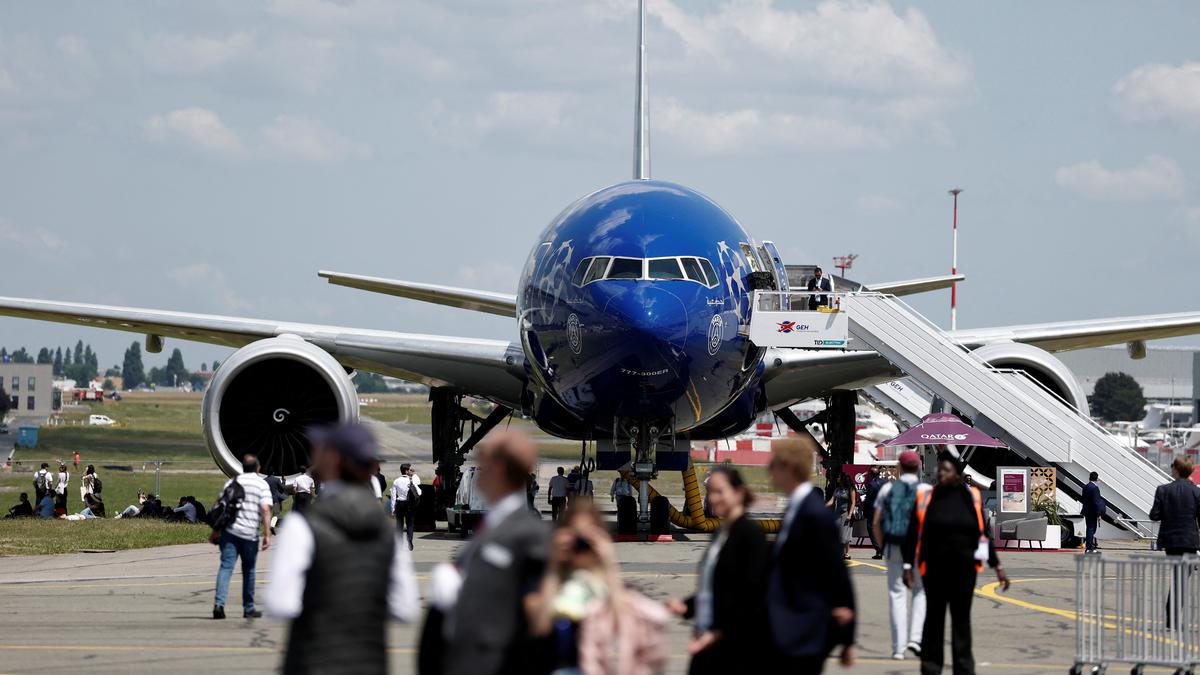As geopolitical tensions in West Asia temporarily closed critical air routes, hundreds of international passengers faced an unexpected and gruelling ordeal at Kochi International Airport on Tuesday. A sudden disruption in airspace usage has caused massive delays and cancellations of flights bound for the Gulf region and beyond, leaving travellers in limbo for over 14 hours in some cases.
The cascading impact of a temporary closure of Qatar’s airspace was immediately felt in Kerala, where Kochi airport serves as a critical hub for international traffic—particularly connecting the Indian diaspora to Gulf nations. On the morning of June 25, 2025, at least 17 international services to and from Kochi had been cancelled. Among these were scheduled flights to Doha, Dubai, Abu Dhabi, Muscat, Ras al-Khaimah, Bahrain, Dammam, and Kuwait. Passengers, already checked in and past security clearance, found themselves stuck inside terminals with limited facilities and little information. Many described the experience as disorganised and emotionally taxing.
One group of five travellers, part of a larger tour group headed to the UK, had been waiting at the airport since midnight. According to them, their Qatar Airways flight, originally scheduled to land at 2:50 a.m. and return to Doha at 4:15 a.m., had still not arrived even by Tuesday afternoon. With their international connection now missed and no assistance forthcoming, the group’s dream vacation was derailed. Airport authorities have since advised passengers to rely on email and SMS updates from their respective airlines. However, with limited staff presence during the early morning hours, the passengers reported a lack of basic amenities such as food, water, or proper seating arrangements.
While Qatar has since reopened its airspace, flight schedules continue to be disrupted as airlines rework routes and crew shifts. The situation has reignited discussions on airport resilience and the need for crisis-ready infrastructure at major travel nodes like Kochi. According to airport sources, some of the stranded passengers were senior citizens and families with children. With limited access to lounges or waiting areas post-security, their wait turned into a test of endurance. Industry experts said the disruption illustrates the fragile nature of global mobility and how quickly international events can reverberate through local systems. Aviation analysts note that the Gulf sector remains one of the busiest for South Indian airports, and any regional instability causes immediate, widespread consequences.
Officials from Kochi International Airport confirmed that they were in constant touch with airline representatives but admitted that rerouting and rescheduling were challenging due to slot constraints and the volume of affected flights. Moreover, pilots and crew availability were also affected due to extended duty cycles. This is not the first time Kochi airport has had to grapple with sudden disruptions. During the floods in 2018 and the pandemic lockdowns, the facility saw extended shutdowns and emergency operations. While those disruptions were domestic in origin, the current situation is emblematic of how intertwined global events are with local logistics.
The Transport and Civil Aviation Ministry has yet to issue a formal statement on the episode, but local officials said they are assessing the scope of the delays and working with airlines to assist passengers. There has also been demand from civil society groups to establish better protocols for stranded passengers during global emergencies—especially those who are unable to exit the terminal area after security clearance. Experts in aviation law suggest that travellers caught in such disruptions are often not protected under standard refund or rescheduling clauses, leaving them at the mercy of airline discretion. While some premium travellers may receive assistance, the vast majority—including those on budget flights—are left to fend for themselves.
Passenger advocacy bodies have also questioned why no interim facility, such as temporary waiting zones or food distribution counters, was arranged during the prolonged delay. Despite the initial confusion, normal operations at Kochi airport are expected to resume gradually over the next 24–48 hours, subject to airspace clearance and aircraft availability. The airport authority is expected to release a more detailed bulletin soon.
While the crisis may ease in a few days, the experience has sparked broader conversations about passenger rights, global interconnectedness, and the urgent need to climate-proof and conflict-proof India’s international aviation gateways. As cross-border conflicts become increasingly unpredictable, ensuring equitable access to real-time information, shelter, and essential services for air travellers must be a policy priority going forward.
Also Read : Maharashtra Clears 800 km Shaktipeeth Expressway


